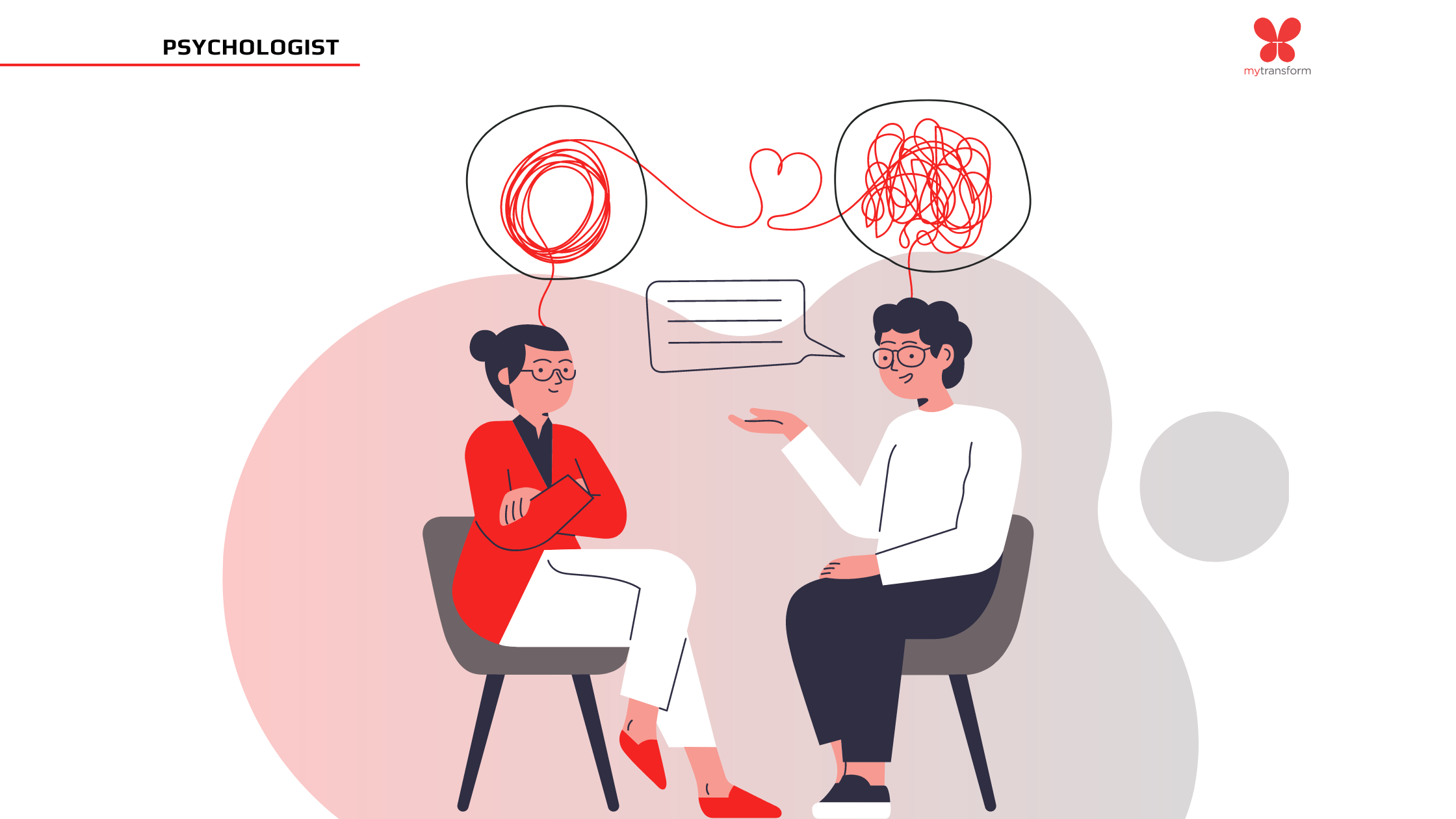Psych Therapy: A Comprehensive Guide to Results and methods

Cognitive-Behavioral Treatment
Cognitive-Behavioral Therapy (CBT) is a widely made use of psychotherapeutic technique that focuses on recognizing and customizing dysfunctional reasoning and habits patterns. Developed in the 1960s by Aaron T. Beck, CBT integrates cognitive and behavioral theories to resolve different psychological health and wellness issues, consisting of depression, anxiousness, and stress-related disorders. The property of CBT is that maladaptive thoughts add to psychological distress and maladaptive behaviors. By reorganizing these thoughts, people can achieve significant renovations in their emotional health and daily performance.
CBT is identified by its structured, ambitious nature. Treatment typically involves a collaborative process between the therapist and client, where particular problems are identified, and sensible strategies are developed to address them. Techniques such as cognitive restructuring, exposure treatment, and skill-building workouts are generally used. Cognitive restructuring includes difficult and changing negative thought patterns, while direct exposure treatment intends to minimize worry and stress and anxiety with gradual exposure to been afraid situations or things.
Evidence-based research sustains the effectiveness of CBT for a large range of mental problems - Best Psychologist in Delhi. Its focus on skill procurement and self-help methods empowers customers to continue development independently after treatment concludes. The flexibility and effectiveness of CBT have actually made it a foundation in modern psychotherapeutic practice
Psychodynamic Strategies
Rooted in the early concepts of Sigmund Freud, psychodynamic methods concentrate on exploring the subconscious mind and its influence on habits and feelings. These techniques intend to uncover surprise thoughts and feelings that might be driving maladaptive behaviors and emotional distress. Central to this approach is the idea of internal conflict, usually coming from unsolved past experiences, especially those from childhood years.
Therapists utilizing psychodynamic methods use several crucial approaches, including totally free organization, where people are encouraged to speak easily to disclose subconscious material, and dream analysis, which translates the latent material of desires. Furthermore, the exploration of transference and countertransference characteristics within the healing relationship is vital. These interactions can provide understandings right into the client's interior world and relational patterns.
Psychodynamic therapy is generally longer-term compared to various other techniques, using a deep and comprehensive understanding of the individual's psyche. Study indicates that it can be specifically effective for complex mental health and wellness issues, such as individuality disorders and persistent clinical depression. By promoting self-awareness and emotional insight, psychodynamic therapy seeks to bring unconscious material to awareness, allowing individuals to accomplish enduring and meaningful modification in their lives.
Humanistic Methods
Structure on the foundations laid by psychodynamic techniques, humanistic methods supply an unique point of view concentrated on specific prospective and self-actualization. Coming from the mid-20th century, these methods focus on the integral benefits and growth possibility of people, highlighting a holistic view of human experience. Key numbers such as Carl Rogers and Abraham Maslow have actually significantly affected this healing technique, which includes approaches like client-centered treatment and Gestalt treatment.
Client-centered therapy, created by Rogers, plays a critical duty in humanistic methods. It relies upon the therapist supplying a setting of unconditional favorable respect, empathy, and harmony. This cultivates a secure area for customers to discover their sensations and experiences without judgment, promoting self-discovery and individual growth. The specialist's role is even more of a facilitator than an authority, encouraging clients to harness their inner resources for healing.
Gestalt treatment, an additional crucial humanistic strategy, highlights present minute understanding and the integration of body and mind. By concentrating on the "present moment," customers gain higher understanding into their present feelings and behaviors. Methods such as role-playing and assisted visualization are often utilized to help clients obtain a much deeper understanding of themselves, ultimately resulting in improved self-awareness and gratification.
Integrative Therapies
Integrative treatments stand for a synthesis of numerous therapeutic strategies customized to fulfill the special requirements of each customer. This method recognizes the intricacy of human psychology and the diverse nature of mental health concerns. By combining components from various colleges of psychiatric therapy-- such as cognitive-behavioral treatment (CBT), psychodynamic therapy, and humanistic techniques-- integrative therapies offer a see here more versatile and holistic treatment standard.
Experts of integrative treatment assess each client's certain demands, symptoms, and personal history to design a personalized therapy plan. This personalized method enhances the potential for therapeutic success by addressing the origin of emotional distress and promoting general health. Techniques might include mindfulness exercises, cognitive restructuring, and psychological handling, each selected to target different elements of the client's issues.
In addition, integrative treatments highlight the therapeutic relationship, watching the client-therapist bond as a crucial part of reliable treatment. This relationship cultivates a helpful environment where customers feel safe to discover and address their problems. The versatility of integrative therapies makes them ideal for a broad series of problems, including anxiety, clinical depression, trauma, and social difficulties, therefore boosting their applicability and effectiveness in varied clinical setups.

Measuring Treatment Results
Assessing the effectiveness of psychotherapy is vital for both clients and medical professionals to guarantee that the therapy is yielding the wanted outcomes. To attain this, various techniques and devices are utilized to gauge therapy results methodically. Standardized evaluation tools, such as the Beck Anxiety Supply (BDI) and the Generalized Anxiety Condition 7 (GAD-7), give quantitative data on signs and symptom severity and modifications with time.
In addition to standard devices, qualitative methods like client self-reports and scientific meetings offer important understandings right into the personal experiences and perceived development of customers. Frequently arranged analyses, generally at the start, middle, and end of therapy, aid in tracking the trajectory of improvement or identifying areas needing modification.
Result dimension is not restricted to signs and symptom decrease; it also encompasses functional enhancements in life, such as far better social partnerships, raised job performance, and boosted total health. Modern advancements in digital health have introduced mobile applications and on-line systems that promote real-time surveillance and comments, additionally fine-tuning the evaluation process.
Inevitably, a thorough strategy to determining treatment results guarantees that therapeutic interventions are effective, reliable, and customized to satisfy the individual needs of customers, consequently enhancing the overall therapeutic experience.
Verdict
Humanistic methods concentrate on personal growth and self-actualization, while integrative treatments combine numerous methods for customized therapy plans. Examining therapy end results via standardized assessments and qualitative approaches ensures a detailed understanding of effectiveness, eventually leading clients toward withstanding psychological health enhancements.
From the organized strategy of Cognitive-Behavioral here are the findings Therapy (CBT) to the deep exploration of the subconscious in psychodynamic treatment, each approach brings distinct benefits. Its focus on visit ability acquisition and self-help strategies equips customers to proceed progression independently after therapy wraps up (Best Psychologist in Delhi). Secret numbers such as Carl Rogers and Abraham Maslow have actually significantly influenced this therapeutic approach, which encompasses methods like client-centered therapy and Gestalt therapy
